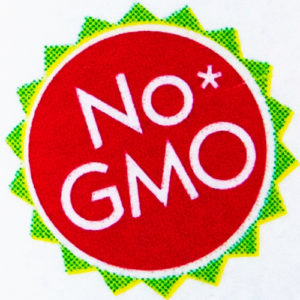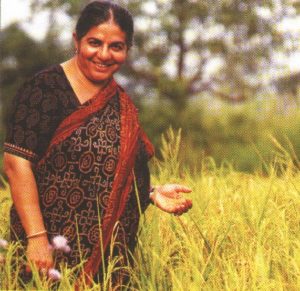Archive for the ‘Food Policy’ Category
Outlook upbeat for food activists

This was good news to read, and it’s a start. Now lets get labeling on our food too!
White House backs healthier eating
By Andrew Martin
NEW YORK TIMES NEWS SERVICE
2:00 a.m. March 22, 2009
ANAHEIM – As tens of thousands of people recently strolled among booths of the nation’s largest organic and natural foods show here, munching on fair-trade chocolate and sipping organic wine, a few dozen pioneers of the industry sneaked off to an out-of-the-way conference room.
Although unit sales of organic food have leveled off and even declined lately, versus a year earlier, the mood among those crowded into the conference room was upbeat as they awaited a private screening of a documentary called “Food Inc.” – a withering critique of agribusiness and industrially produced food.
They also gathered to relish their changing political fortunes, courtesy of the Obama administration.
“This has never been just about business,” said Gary Hirshberg, chief executive of Stonyfield Farm, the maker of organic yogurt. “We are here to change the world. We dreamt for decades of having this moment.”
After being largely ignored for years by Washington, advocates of organic and locally grown food have found a receptive ear in the White House, which has vowed to encourage a more nutritious and sustainable food supply.
The most vocal booster so far has been the first lady, Michelle Obama, who has emphasized the need for fresh, unprocessed, locally grown food and, last week, started work on a White House vegetable garden. More surprising, perhaps, are the pronouncements out of the Department of Agriculture, an agency with long and close ties to agribusiness.
In mid-February, Tom Vilsack, the new secretary of agriculture, took a jackhammer to a patch of pavement outside his headquarters to create his own organic “people’s garden.” Two weeks later, the Obama administration named Kathleen Merrigan, an assistant professor at Tufts University and a longtime champion of sustainable agriculture and healthy food, as Vilsack’s top deputy.
Hirshberg and other sustainable-food activists are hoping that such actions are precursors to major changes in the way the federal government oversees the nation’s food supply and farms, changes that could significantly bolster demand for fresh, local and organic products. Already, they have offered plenty of ambitious ideas.
For instance, celebrity chef Alice Waters recommends that the federal government triple its budget for school lunches to provide youngsters with healthier food. Author Michael Pollan has called on President Barack Obama to pursue a “reform of the entire food system” by focusing on a Pollan priority: diversified, regional food networks.
Still, some activists worry that their dreams of a less-processed American diet may soon collide with the realities of Washington and the financial gloom over much of the country. Even the Bush administration, reviled by many food activists, came to Washington intent on reforming farm subsidies, only to be slapped down by Congress.
Even so, many activists say they are packing their bags and heading to Washington. They are bringing along a copy of “Food Inc.,” which includes attacks on the corn lobby and Monsanto, and intend to provide a private screening for Vilsack and Merrigan.
At the heart of the sustainable-food movement is a belief that America has become efficient at producing cheap, abundant food that profits corporations and agribusiness, but is unhealthy and bad for the environment.
The federal government is culpable, the activists say, because it pays farmers billions in subsidies each year for growing grains and soybeans. A result is an abundance of corn and soybeans that provide cheap feed for livestock and inexpensive food ingredients such as high-fructose corn syrup.
But advocates of conventional agriculture argue that organic farming can’t provide enough food because the yields tend to be lower than those for crops grown with chemical fertilizer.
“We think there’s a place for organic, but don’t think we can feed ourselves and the world with organic,” says Rick Tolman, chief executive of the National Corn Growers Association. “It’s not as productive, more labor-intensive and tends to be more expensive.”
The ideas are hardly new. Farmland philosopher and author Wendell Berry has been making many of the same points for decades. What is new is that the sustainable-food movement has gained both commercial heft, with the success of organic and natural foods in the past decade, and celebrity cachet, with a growing cast of chefs, authors and celebrities who champion the cause.
It has also been aided by more awareness of the obesity epidemic, particularly among children, and by concerns about food safety amid seemingly continual outbreaks of tainted supplies.
While their arguments haven’t gained much traction in Washington, sustainable-food activists and entrepreneurs have persuaded more Americans to watch what they eat.
They have encouraged the growth of farmers markets and created such a demand for organic, natural and local products that they are now sold at many major grocers, including Wal-Mart.
“Increasingly, companies are looking to reduce the amount of additives,” says Ted Smyth, who retired this year as senior vice president at H.J. Heinz, the food giant. “Consumers are looking for more authentic foods. This trend absolutely has percolated through into mainstream foods.”
The sustainable-food movement also owes much of its current success to pioneers in the organic and natural foods industry. Many started their businesses for idealistic reasons and have since turned their startups into major corporations.
Manufacturers improved their organic and natural products so they could compete with conventional foods on packaging and taste. Whole Foods Market also lured more mainstream customers by creating lush displays of produce and fish that have influenced more traditional grocers.
Nancy Childs, a professor of food marketing at St. Joseph’s University, said sustainable food activists forced the public to focus on the quality and sourcing of food. She says that “continual attention in the news” also gave the movement legs.
But Childs worries that some of the activists’ recommendations for buying fresh, local or organic food cannot be adopted by many Americans because those foods may be too expensive. “By singling out certain lifestyles and foods, it’s diminishing very good quality nutrition sources,” she says. “Frozen goods, canned goods, they are not bad things. What’s important is that people eat well, within their means.”
“We’d all love to live on a farm in Vermont, right?” she adds.
Find this article at:
© Copyright 2009 Union-Tribune Publishing Co. • A Copley Newspaper Site
An Inspiration for us all – Dr. Vandana Shiva
“Over the past three decades I have tried to be change I want to see.”
I was privileged to hear Dr. Shiva speak this weekend in Anaheim, CA. The topic of her talk was Soil Not Oil: Environmental Justice in an Age of Climate Crisis.
Vandana Shiva was a Physicist in India and left the world of science, she says, “When I found that dominant science and technology served the interests of powerful, I left academics to found the Research Foundation for Science, Technology and Ecology, a participatory, public interest research organization.
When I found global corporations wanted to patent seeds, crops or life forms, I started Navdanya to protect biodiversity, defend farmers’ rights and promote organic farming.
Navdanya/RFSTE’s journey over the past two decades has taken us into creating markets for farmers and promoting tasty, healthy, high quality food for consumers. We have connected the seed to the kitchen, biodiversity to gastronomy. And now we have joined hands with Slow Food to celebrate the quality and cultural diversity of our food.”
She spoke about ‘a century of error’ in food technology. When the Indian farmers were encouraged to grow Bt cotton (a genetically modified cotton) their seed price went from 7 rupees to 7,000 rupees for them to buy seed. And the GE seed is made to be infertile so the farmers couldn’t save their seed to grow the next year. They got so in debt that 84% of the cotton farmers that were using the GE seed, committed suicide. Dr. Shiva calls this Bio-Piracy; The stealing by a large multi-national corporation [{Monsanto] of our food and seed supply.
It’s time for all of us to stand up and say, no, we won’t stand for this.
Instead of changing and then patenting (and owning!) our seeds, we need to get back to basics; organic and sustainable farming. Which can feed the world and will help climate change as well. In research that was done, biodiverse organic farms had the greatest food yield of any kind of farming. It can feed the world and is good for the environment as well. The number two issue of climate change is the factory farms of the world. Our government has been exacerbating this issue with subsidies (with our tax dollars!) to GE and factory farmers. We need to focus on many small, organic farmers so people can eat local and healthy food.
She said, “A healthy environment and a just world go hand-in-hand. In a time of changing climates and increasing food scarcity, sustainable and biologically diverse farms are the champions for food production that is resistant to disease, drought, and flood. By promoting the productivity of small independent farms we can increase the potential for social justice and biodiversity”
And she ended her wonderful and inspirational talk, with a reminder to also cultivate peace, happiness and joy.
You can visit her website here:
Vandana Shiva is a world-renowned environmental leader and thinker. Director of the Research Foundation on Science, Technology, and Ecology, she is the author of many books, including Water Wars: Pollution, Profits, and Privatization (South End Press, 2001), Biopiracy: The Plunder of Nature and Knowledge (South End Press, 1997), Monocultures of the Mind (Zed, 1993), The Violence of the Green Revolution (Zed, 1992)
Ms. Shiva is a leader in the International Forum on Globalization and founder of Navdanya (“nine seeds”), a movement promoting diversity and use of native seeds. In 1993, Shiva won the Alternative Nobel Peace Prize (the Right Livelihood Award). Before becoming an activist, Shiva was one of India ’s leading physicists. She holds a master’s degree in the philosophy of science and a Ph.D. in particle physics.
Why NAIS will hurt small farmers – NO on H.R. 875
H.R. 875 – Tell your Representatives to vote NO
The real deal that changes the face of the American Farmer is
H.R. 875. I spent all day finding the fax numbers of each and every congressman and woman, including Nancy Pelosi that were on the Committees hearing this bill. It is titled, “[111th] Food Safety Modernization Act of 2009 (Introduced in House)”. If you go to Sec 210 – Traceback Requirements, paragraph d, sub-paragraph 2, sub-paragraph D, you will find DIRECT reference to implementation of NAIS! Shoot, I’m just gonna copy and paste it for you here:
SEC. 210. TRACEBACK REQUIREMENTS.
(a) In General- The Administrator, in order to protect the public health, shall establish a national traceability system that enables the Administrator to retrieve the history, use, and location of an article of food through all stages of its production, processing, and distribution.
(b) Applicability- Traceability requirements under this section shall apply to food from food production facilities, food establishments, and foreign food establishments.
(c) Requirements-
(1) STANDARDS- The Administrator shall establish standards for the type of information, format, and timeframe for food production facilities and food establishments to submit records to aid the Administrator in effectively retrieving the history, use, and location of an item of food.
(2) RULE OF CONSTRUCTION- Nothing in this section shall be construed as requiring the Administrator to prescribe a specific technology for the maintenance of records or labeling of food to carry out the requirements of this section.
(3) AVAILABILITY OF RECORDS FOR INSPECTION- Any records that are required by the Administrator under this section shall be available for inspection by the Administrator upon oral or written request.
(4) DEMONSTRATION OF ABILITY- The Administrator, during any inspection, may require a food establishment to demonstrate its ability to trace an item of food and submit the information in the format and timeframe required under paragraph (1).
(d) Relationship to Other Requirements-
(1) CONSISTENCY WITH EXISTING STATUTES AND REGULATIONS- To the extent possible, the Administrator should establish the national traceability system under this section to be consistent with existing statutes and regulations that require record-keeping or labeling for identifying the origin or history of food or food animals.
(2) EXISTING LAWS- For purposes of this subsection, the Administrator should review the following:
(A) Country of origin labeling requirements of subtitle D of the Agricultural Marketing Act of 1946 (7 U.S.C. 1638 et seq.).
(B) The Perishable Agricultural Commodities Act of 1930 (7 U.S.C. 499a-t).
(C) Country of origin labeling requirements of section 304 of the Tariff Act of 1930 (19 U.S.C. 1340).
(D) The National Animal Identification System as authorized by the Animal Health Protection Act of 2002 (7 U.S.C. 8301 et seq.).
(3) CERTAIN REQUIREMENTS- Nothing contained in this sectn prevents or interferes with implementation of the country of origin labeling requirements of subtitle D of the Agricultural Marketing Act of 1946 (7 U.S.C. 1638 et seq.).
Here is the letter that I copied from earlier post with my changes:
(This is the letter I have sent to the Committees on Energy & Commerce and Agriculture as well as each individual on each of these committees and subcommittees. Please read and be aware of this bill or its incarnations as this will affect every small holding in your district and the country as a whole. This is a very scary proposition and if you have ever watched the movie “Soylent Green” realize that small farmers have watched it too.
“He who controls the food supply, controls the world”. ~Carol Peters
H.R. 875 is about making a mandatory
National Animal Identification System(NAIS) (see Sec210(d)(2)(D).
Wiping out America’s healthy food growers at a time when the nation is already about to buckle under economic distress, will only put the final nails in our coffins and this country will look like a 3rd world country in no time at all. I have a small family farm. We grow our own crops and raise our own livestock on 5 acres.
We sell our surplus to offset the costs of living off the land. Our goal is to retire on up to 200 acres of farmland.
Regulation in a Mandatory NAIS Program will destroy our way of life and our dreams of peaceful retirement farming!
Provisions need to be addressed for the small holding farmer!
NAIS is designed to eliminate private animal ownership and industrialize the global food supply. It states it is going to stop disease, but it doesn’t. Its only function is to eliminate the private animal owners from the food supply, thus industrializing agriculture and the entire global food supply. This happens as a direct result of all the required NAIS expenses, required paperwork, loss of property rights and privacy, and outrageous non-compliance fines.
All I can ask…beg of you, is to work diligently against NAIS and H.R.
875 Sec 210(d)(2)(D), as it will completely wipe out the American farmers. All that will be left is the big disgusting Concentrated Animal Feeding Operations (CAFOs) that feed tons of antibiotics, hormones, and chemicals just to keep the million+animals alive in those “cess-pool farms”. That is the face of Industrialize
Agriculture-CAFOs. NAIS will lead to nothing but CAFOs for our food supply.
NAIS is worse than any disease it hypes about preventing. NAIS is what farmers have to worry about in destroying all their animals, not any diseases.
NAIS itself will be the most deadly thing in America’s farms, if it gets passed.
Please vote against H.R. 875 today!
p.s.
Could one of the congressmen or women please give a copy of this letter to the Chairman of Subcommittee on Energy and Environment, Congressman Markey, because his is the only D.C. office that refuses to give out his fax.
Thank you.
Carol

